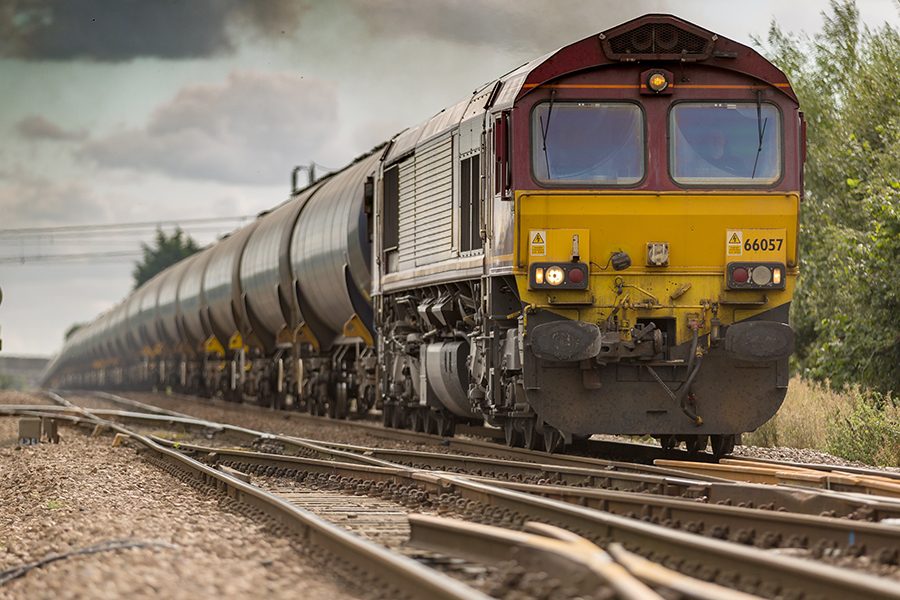
Home » Port of Kennewick renews railcar company’s Finley lease without rent increase
Port of Kennewick renews railcar company’s Finley lease without rent increase

May 15, 2020
A Portland railcar company will continue operating another five years at the Port of Kennewick’s Twin Tracks Industrial Park in Finley.
Greenbrier Rail Services, a tenant since the park opened in the 1990s, exercised the second of its six original options to renew the lease for its 40-acre railcar maintenance center. The move preserves 32 jobs, though employment there has gone as high as 90.
Twin Tracks Industrial Park, 228919 E. Cochran Road, is one of the few sites in Washington to offer access to both Union Pacific and Burlington Northern Santa Fe rail lines, customers for the Greenbrier’s railcar maintenance and repair services.
The port commission voted 3-0 during an April 14 business session to renew Greenbrier’s lease at the old rate of $5,000 a month plus $642 in leasehold taxes. It was a reluctant concession on the part of one commissioner. Chairman Don Barns only agreed to help a valued tenant when the economy is faltering because of the coronavirus crisis.
“If not for the pandemic, I do not think I would approve keeping this rent flat for the next five years,” he said.
Pacific Rail Car, a predecessor to Greenbrier, first leased the site in 1993 for $4,000 a month.
After Pacific Rail was sold to Gunderson Northwest, later Greenbrier, the port secured a state Community Economic Revitalization Board grant for $475,000 to link the Union Pacific and Burlington Northern lines. The CERB loan was repaid in 2015 with proceeds from lease payments.
The original lease included language allowing it to extend the original 20 years by another 30 years, in five-year increments.
The rent rose to $5,000 when Greenbrier exercised its first option.
Greenbrier subleases a portion of the property to U.S. Cellular for a communications tower.
The tower supports wireless service in eastern Benton County. The port signed off on the agreement in 1996. It estimates U.S. Cellular rents the site for about $7,500 a year, though the exact amount is not known.
Greenbrier is a good tenant that pays on time and makes few if any demands for maintenance, said Amber Hanchette, the port’s real estate director.
However, it “strongly” resisted a proposed 3 percent rent increase, citing an industry slowdown, she said.
A Greenbrier vice president said a quarter of all railcars are in storage in a March 3 letter requesting no increase.
“Although the economy appears to be doing well, the (r)ailcar industry in general including railcar repair services is in a down cycle,” wrote Robert Hatfield.
Greenbrier, which reported $3.3 billion in revenue for fiscal 2019, provided added detail in its second quarter 2020 earnings report, which was released April 7.
Its parent, Greenbrier Companies (NYSE: GBX), reported net earnings of $13.6 million, or 41 cents per diluted share on revenue of nearly $624 million and declared a quarterly dividend of 27 cents per share.
First half earnings approached $1.4 billion. It said it booked orders for 8,500 railcars valued at more than $815 million during the quarter, bringing its backlog to 30,800 with a combined value of $3.2 billion on Feb. 29.
However, it also announced it reduced its global workforce by 3,500 employees, or 20 percent of its total, and was taking aggressive steps to reduce costs in anticipation of lower demand for its railcars.
Most of the layoffs were in Mexico and the chief executive officer and board took pay cuts. It idled railcar manufacturing at its flagship facility, the Gunderson site in Portland.
In another nod to the uncertain times, it eliminated fiscal guidance, meaning it won’t offer investors insight into revenue expectations for 2020. It cited the pandemic for the uncertainty.
Greenbrier derives most of its revenue from manufacturing. Leasing and services represent about 5 percent of its business.
A spokesman said the Finley facility is a separate entity from the manufacturing side. Leasing and services have been in a slump for several years.
The Finley shop is dedicated to railcar repair. Its other Washington facilities include a repair facility in Chehalis and a wheel and parts center in Tacoma.
Local News Transportation
KEYWORDS may 2020




